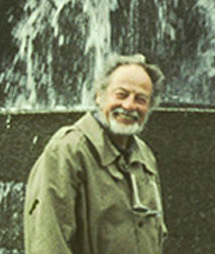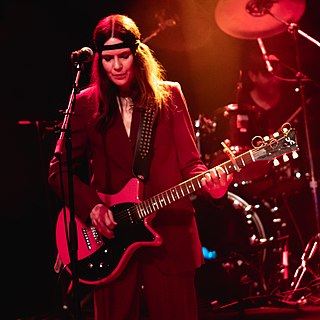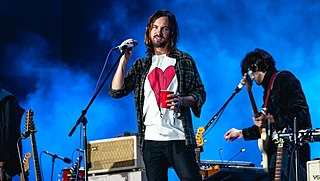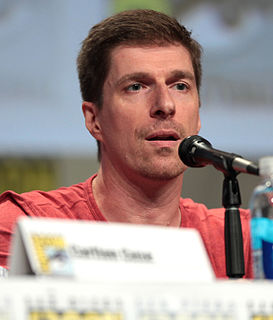A Quote by Geoff Dyer
I first got a sense of that idea of nodality - but I didn't use the word back then - with 'The Missing of the Somme': that sense of a particular place in a landscape or on a map having some kind of tremendous power to draw us to itself... that made me conscious, and since then, really, it has been an abiding concern of mine.
Related Quotes
Nobody that I know really likes the feeling of having no power and not being able to influence people. But most of us aren't too conscious of what we are trying to do and get that control and that power so people end up sort of playing all kinds of unconscious manipulative games or they're sort of half aware, they have an idea of a strategy or goal they want to use and they think about it. But then in the heat of the moment, it kind of all flies out the window.
Talking about the fact that I get depressed or that I've had some suicidal issues in my life is not easy. I don't know of many comedians who are going all in on that. In some sense, I think I've maybe sacrificed some momentum doing that. In another sense, I'm in a place where if I can talk about that and if it helps some kid in a way that gives them some help that wasn't available to me when I was a kid, then I gotta do that. Put being a good person first. If you have a platform, use it for stuff that's noble and good and worth putting out in the world.
The common sense of the word (navy) as we use it today refers to a permanent fighting service made up of ships designed for war, manned by professionals and supported by an adminsistrative and technical infrastructure. A navy in this sense is only one possible method of making war at sea, and by some way the most difficult and the most recent. There have in the past been, and to some extent still are, many other ways of generating sea power.
I'm coming to a sense of a women's movement which was extraordinarily important in the struggle for freedom in Ireland and immediately afterwards, but then some of those women who were involved in the movement got involved in representative positions and perhaps some of them got a bit distanced from the grassroots issues. But also the women's movement itself seemed to say, "No, we've got our own government, our own parties in power" and they sat back.
I get really worried, like if they say, 'Take vocal lessons,' or something because it's kind of like I used to really love to draw when I was a kid and then I took like an art class - because everyone said, 'Oh, you're so good, you should take a class and maybe you can be really good,' and then I went to the class and then they showed me how to use a ruler and perspective and all this stuff and it totally made me not want to do it at all.
I write first drafts feverishly fast, and then I spend years editing. It's not that sentence-by-sentence perfectionist technique some writers I admire use. I need to see the thing, in some form, and then work with it over and over and over until it makes sense to me - until its concerns approach me, until its themes come to my attention. At that editing stage, the story picks itself and it's just up to me to see it, to find it. If I've done a good job, what it all means will force me to confront it in further edits.
It's not that I wrote those details, but photos can give you the confidence that you have a real feel for the landscape. Then you can invent with a solid kind of faith, and recreate a feel and flavor of the time, and, one hopes, a tonality, a sense of that time having been lived by those characters.
I guess, in a sense, 'Audition' was a film that gave me an opportunity that I hadn't had up until that point. So that's definitely one that is important to me. Then there's 'Visitor Q' that kind of taught me that there are some kinds of films that can only be made as low-budget films that really wouldn't work as anything else.






































